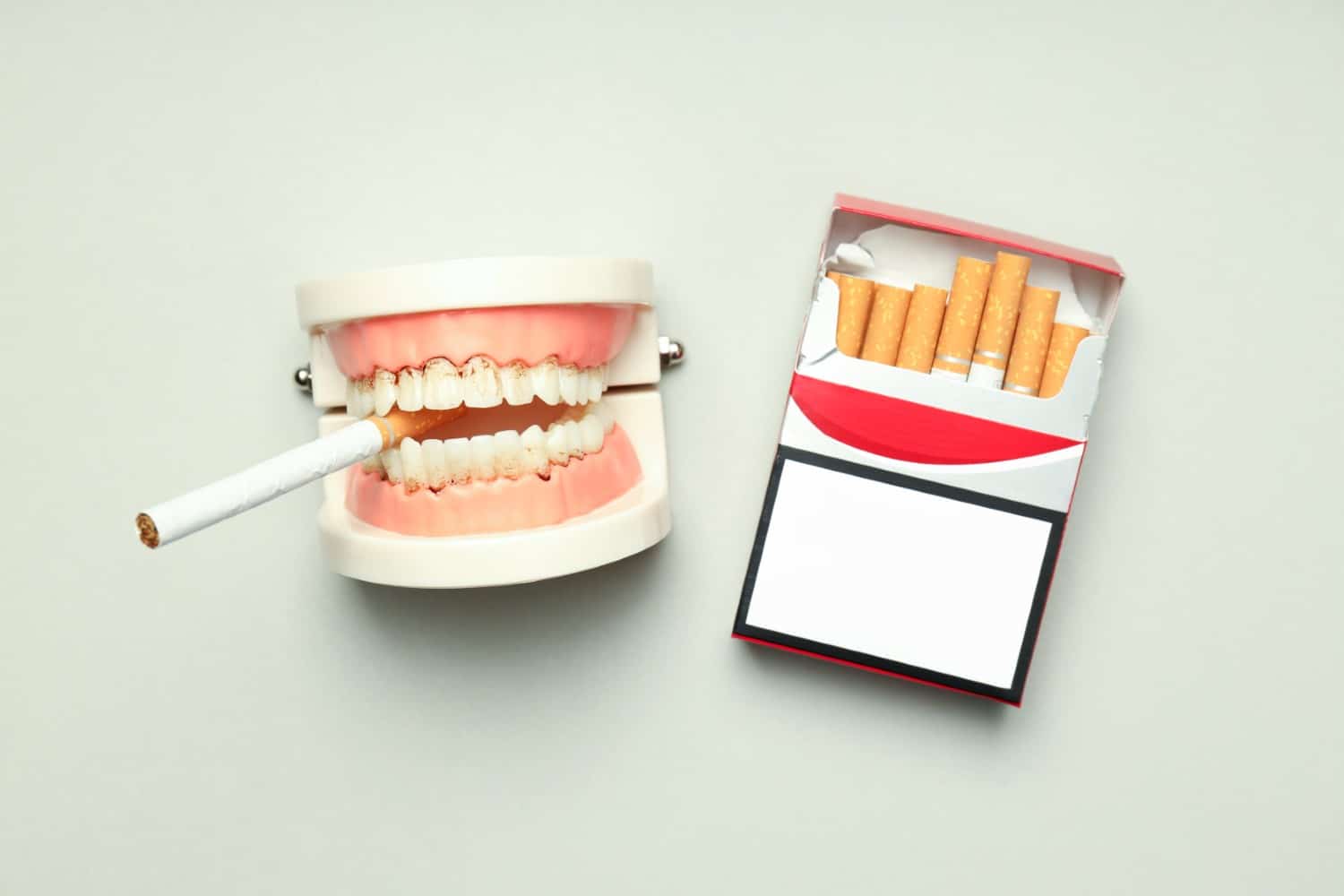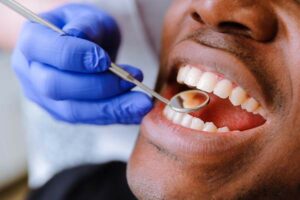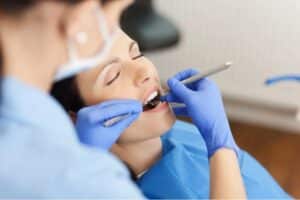The recreational use of tobacco and alcohol is very frequent. Even though sporadic use of these will have no major consequences for your teeth, it is important to note that tobacco use, whether through smoking or chewing, can significantly impact oral health, particularly of the teeth, gums, and mouth. Here are some risks associated with tobacco use for teeth:
- Staining: Tobacco products contain tar and nicotine that can cause severe staining of the teeth, leading to yellow or brown discoloration over the years. These stains are often difficult to remove. Oftentimes, even professional whitenings require several sessions in order to see a noticeable difference in the color. This is because stains sometimes permeate the whole enamel and into the dentin (the soft layer beneath the enamel that protects the nerve). Even if the stains do go away after treatment, they will likely return if the habit persists.
- Gum disease: Smoking weakens the immune system, making it harder for the body to fight off infections, including infections in the gums. This can lead to periodontal disease, causing inflammation, bleeding and gum recession. The problem with persistent gum disease is that it causes bone loss and loose teeth that are oftentimes non-reversible and ends with the loss of teeth.
- Bad breath: Tobacco use can cause chronic bad breath, also known as halitosis. The chemicals in tobacco products contribute to this foul smell and can linger in the mouth, despite regular brushing and mouthwash use.
- Delayed healing: Tobacco use restricts blood flow to the gums, affecting their overall health. Poor blood circulation can lead to tissue damage, increased susceptibility to infections, and delayed healing. In other words, smoking can slow down the healing process after dental procedures that require surgery. Lower oxygen levels in the bloodstream can interfere with the body’s ability to repair damaged tissues and may lead to complications. This is especially important in the process of getting dental implants because delayed healing increases the risk of having bacteria get in the wound and start an infection, which in turn causes implant failure. The rule of thumb is that smokers should quit the habit if they plan to get dental implants as it can even annul the warranty of their implants.
- Oral cancer: Tobacco use is a significant risk factor for various types of oral cancers, including those affecting the lips, tongue, cheeks, and throat. These cancers can be life-threatening and often require extensive treatments like surgery, radiation, or chemotherapy.
- Tooth decay: Smoking can contribute to a higher risk of developing cavities and tooth decay. The chemicals in tobacco products can weaken tooth enamel, making the teeth more susceptible to decay and erosion.
In general, avoiding tobacco use can significantly improve oral health and reduce these risks. Dental professionals often encourage quitting smoking or chewing tobacco to prevent further damage to teeth and gums, especially if there are already symptoms of damage present. Regular dental check-ups, professional cleanings, and maintaining good oral hygiene habits are crucial for minimizing the impact of smoking on oral health. At the Costa Rica Dental Team, we have a team of dentists who provide exceptional care and attention to our patients.
We know quitting smoking is a process. We will take all the necessary time to let you know how to best care for your teeth even if you are in the process of changing your habits. We are located in San Jose, Costa Rica. If you are looking for a dentist who truly cares, do not hesitate to contact us now!




